
 What the heck is happening to our country? That is the toned-down version of a question I heard this morning. Events in Ferguson, Missouri have put a spotlight on the social problems that continue to exist in our communities. Unfortunately, the answers to these problems will not likely be forthcoming. Symptoms may be addressed in a few areas but the root causes will probably remain firmly entrenched. Continued moral decline is what is happening to our country. The vandalism, looting, and burning of property that took place last night was simply a crime of opportunity. A “mob mentality” is easily created in this type of environment and the results are quite predictable. The destruction of businesses in a community that is already struggling will only exacerbate the existing challenges of poverty, unemployment, and criminal activity. A thinking person realizes that these actions don’t accomplish anything in regard to promoting justice or honoring the memory of the deceased. However, thinking seems to be a commodity in short supply in a scenario such as this. Rush Limbaugh mentioned in his opening monologue today that thinking has been replaced with feelings. He cited sports examples in which interviewers asked athletes, “How do you feel?” As I watched interviews last night with numerous people in the Ferguson area this sentiment was played out over and over. “I feel” was the predominant theme. This makes it difficult, if not impossible, to reason with people regarding the facts. After all, some people don’t want the facts messing up the narrative they have playing in their mind. In fair disclosure, I want to mention a couple of things. Thirty years ago I was a police officer with the St. Louis County Police Department serving in the North County precinct not far from Ferguson. Secondly, I am an ISTJ on the Myers-Briggs personality type assessment. (For those of you unfamiliar with this tool, the “T” stands for “thinking” as opposed to an “F” which stands for “Feeling.”) My personality type is to evaluate and analyze information based upon the facts and circumstances as they are presented. Although I tend to trust my gut instinct in certain circumstances, my preferred mode of operation is to think through a situation and arrive at the best decision based upon the available data. In the rule of law, I hope we will always utilize facts as the basis of decisions rather than feelings. Even if a personality type is an “F” rather than a “T” it would still seem logical (in my “T” world) to utilize evidence as the basis of the Grand Jury decision rather than feelings. If feelings are going to dominate the criminal justice system rather than a process of judicial review, we have simply moved into a state of anarchy and we can all kiss our sense of security of good-bye. Ferguson gave us a glimpse into that style of living last night. This side-trip leads me back to the “root” causes of the social problems in communities like Ferguson. The current symptom appears to be racial tensions between white cops and black citizens. (A poll today showed that 98% of blacks think the decision by the Grand Jury was wrong and 96% of whites think it was right.) The historical context of slavery and oppression play into these perceptions, but what are the modern day factors contributing to the upheaval and chaos being experienced today? Delving into the sociological and psychological research would require an exhaustive amount of time—far beyond the scope of this article. Thus, I will lay out my opinions without the sources of research to back up what I consider some of the root causes. I think (and feel) that the breakdown of the family unit is a huge contributing factor to the undermining of positive values being handed down from one generation to the next—especially in minority neighborhoods. Virtuous male role models are absent in the lives of many young black men growing up. How will they effectively learn right from wrong? What are their attitudes toward authority figures and how did they develop them? Who models appropriate behavior for them? Looking at these types of factors will get us closer to the root causes of the behaviors we witnessed last night. Secondly, I think (and feel) that the failed educational system is not providing the tools to “think” effectively and logically. How can wise choices be made if one lacks the basic understanding of assessing and processing information? Has the current educational system simply indoctrinated young minds in minority neighborhoods to see themselves as victims and entitled to certain things? If our schools are telling students what to “feel” rather than teaching them how to “think,” we are justly reaping the chaos that has been sown. Finally, the Church no longer serves as a dominant influence in the moral training of our young people. If good and upright values are not received from the family or from the Church, from whence shall they come? The disturbing images on TV last night were made more horrendous when folks like Rev. Al Sharpton use the Church to incite more violence rather than to promote calm and common sense. Families are falling apart. Educational systems are sometimes producing an inferior product. Church attendance is in steep decline. These foundations of society are crumbling and we are beginning to experience the repercussions. Prominent institutions which once served as agents of solidarity and cohesiveness have disintegrated before our eyes. Technological connections have replaced family. Indoctrination and politics have replaced education. Media and entertainment have replaced spiritual and religious practice. What the heck has happened to our country? The answer is plain and simple. We have turned away from God. Even though we are preparing to enter the Advent season, it may be a good time to be reminded of what we hear at the beginning of Lent. “Turn away from sin and be faithful to the Gospel.” Although the ideas of servant leadership are ancient, Robert K. Greenleaf did a fantastic job of articulating these concepts for our time. I, for one, have benefitted from his writings. Mr. Greenleaf died in 1990 but his work continues to impact our world. It is my hope that more individuals and organizations will truly heed the call of servant leadership because it could monumentally transform our world.
The Sacred Scriptures highlight the lifestyle of a servant leader. Those who attend church on a weekly basis are reminded frequently of what it means to be a follower of that tradition. Jesus Christ was the ultimate servant-leader, and He invites us to take up our cross daily and follow Him. What hinders our response to that invitation? Can you imagine a world in which we all were striving to live as servant-leaders? Start in the home. What would we experience in our families if each individual did his or her best to exhibit love by serving the others in the household? I am not simply talking about a delineation of household chores. I am referring to a genuine and heartfelt, caring environment in which each member of the home truly wanted the best for the other members—and helped them achieve it. Do we bring out the best in one another? The home is the foundation from which these principles will emanate. We need to get it right in the home to enhance our effectiveness in the community. Bullying has been a problem in our schools of epidemic proportion. If children learned servant-leadership in the home on a wide-spread scale the school culture would change dramatically. Unfortunately, many families are not guided by Christian principles in our day. Furthermore, the schools have also removed God. School administrators have become paralyzed with fear in regard to keeping religion out of the school. They don’t want to be sued for violating the separation of church and state. Thus, the greatest piece of literature—the Bible—is not studied due to this fear. Subsequently, the premier tool to teach servant-leadership is not utilized and society pays the price. Young people who do not learn the basic principles of servant-leadership during their formative years will enter adulthood with other values guiding their way. What will those guiding factors be? We typically spend a lot of hours at work as adults. Even if you aren’t the boss, you can still be a servant-leader. Leadership is influence, not simply a position or a title. If surveys regarding “employee satisfaction” are accurate, we could certainly use more servant-leaders in the workplace. Dysfunction in the workplace due to poor leadership is rampant. What would happen if each us truly “bloomed where we were planted?” I may not be able to change the world, but I can change myself. What impact would that have on the people around me? The lust for power, fame, and fortune is evident in our world today. Among our “public servants” we see endeavors which highlight a path to “doing well” for the individual as opposed to “doing good” for those they have been called to serve. This is a symptom of a much deeper problem permeating modern society. Looking out for number one seems to frequently supersede the aspect of being a servant-leader. The sin of pride hinders our ability to recognize Jesus Christ in our neighbor. As we inch closer to Thanksgiving Day, I am grateful for all of the people who have touched my life in a positive way throughout the years. I still have a lot to learn, and a lot to put into practice more fully, but I have truly been blessed with many good and wonderful examples in my life. I do not want to take those blessings for granted. I will close this entry with a glimpse of the humility of Robert Greenleaf. He is buried in Terre Haute, Indiana, with an epitaph on his tombstone that shows a bit of his personality: “Potentially a good plumber; ruined by a sophisticated education.” http://www.greenleaf.org/ 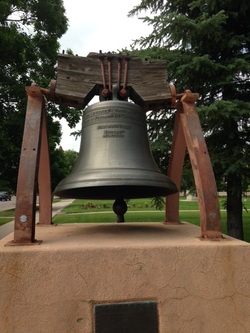 John Maxwell frequently states that everything rises and falls based upon leadership. An institution will flourish under good leadership and it will struggle under poor leadership. We see this lived out on a regular basis in business settings, non-profits, churches, and in all levels of government bureaucracy. Effective leaders ensure that individuals and organizations thrive. Incompetent leaders reap chaos, discontent, and suffering. Effective leadership is anticipatory rather than reactive. Great leaders have the ability to observe and assess situations and plan accordingly. They have proficient skills at training and mentoring others in the organization to also be proactive leaders. Finally, effective leaders encourage healthy conflict among team members to ensure that ideas and issues are discussed thoroughly and honestly. This typically leads to good decision making. Reactionary leadership in Ferguson, Missouri by local, state, and federal officials—all the way up to the U.S. Attorney General and the U.S President—has primed the pump for a worst case scenario to take place. The racial tensions in the St. Louis area have always been quite high, and this latest conflict between Ferguson police and the black community simply exposes the fragile nature of race relations. Unfortunately, government leaders have frequently been viewed as part of the problem rather than part of the solution through this prolonged episode of real-life drama. The question that sticks in my mind is a simple one. How will things change in the future? Once the verdict is announced from the Grand Jury and the dust settles, what will ultimately change? How will leadership at the local level, as well as state and federal agencies, move forward following these months of tension and violence? What will have been learned? As I attempt to put the chaos of Ferguson, Missouri into context, I can’t help but think of the chaos on a wider scale created by failed leadership in regard to the immigration issue. The political aspect of the immigration issue is huge, and one’s political leanings will greatly impact what a person thinks about the president’s speech on Thursday, November 20, 2014. I don’t want to dwell on the pros and cons of immigration. That is a debate for another time. However, I want to look at the processes and methodologies being utilized by the president. Is it good leadership to unilaterally make this move? Our Founding Fathers were quite wise in developing a system which had such a distinct separation of powers. They understood the potential for a misuse of power. Even if the actions to be taken by the president in regard to immigration are within constitutional standards, does anyone view this as good leadership? Who is responsible for gridlock? What is the role of a leader in government? The inability to work with people who have opposing views is detrimental to the well-being of any organization, business, or country. Republicans can blame Democrats; Democrats can blame Republicans. In the end, if John Maxwell is accurate in regard to everything rising and falling in regard to leadership, the leader of the country may need to look in the mirror for clarity about the failed attempts to get things done. It is no doubt that the issues are complex. In no way am I minimizing the difficult task of a leader, especially the leader of a country such as the U.S.A. However, the glaring inconsistencies of this administration between the words spoken and the actions taken are alarming under any circumstances. I will be honest. I cringed numerous times during the brief speech of the president. Commentators affirmed many of my ill feelings after the speech was over. In particular, it was interesting to see what the president said a few years ago on numerous occasions about not having the constitutional authority to act on his own, and now he was doing just that. It’s amazing what a difference a few years can make. As he referred to “ripping” families apart by deportation, the image of an unborn baby being “ripped” from the womb immediately entered my mind. In his mind that kind of ripping is apparently okay. Remember his words, “God bless Planned Parenthood.” Although the president quoted Scripture during his speech to win me over, I was not impressed. Anyone can quote Scripture. Living by the principles contained therein is another matter indeed. Speculation about the long-term consequences of the president’s actions is in full swing. Is it constitutional? Will it encourage more illegals to enter the country? Does it create easier opportunities for terrorists to enter our country? What does it mean for individuals and families trying to enter the country legally? What will this do to our job market? What impact will it have on our over-all economy? According to the United States Conference of Catholic Bishops website, “Bishop Eusebio Elizondo, M.Sp.S., auxiliary bishop of Seattle and chairman of the U.S. Conference of Catholic Bishops (USCCB) Committee on Migration, welcomed the news today that the Obama administration will defer deportations for many undocumented immigrants and their families.” I understand the desire to be compassionate, and I realize that failed leadership for years has in many ways created the chaos we currently have in place. However, I would encourage serious reflection before celebrating too boisterously. What are the long-term ramifications of unilateral action by a president? Why do I raise this question? Look at the HHS Mandate of the Affordable Care Act. Many dioceses and Catholic organizations have filed lawsuits against the government. The president has repeatedly, on his own, changed rules without congressional approval. How has that worked out for religious freedom? Do we want unilateral action by the president when it seems to fit in our personal agenda but resist it when it does not? We can’t have it both ways. Bishop Elizondo may welcome this current news about immigration, but I would urge a restrained exuberance. The consequences of these actions go far beyond the issue of immigration. It has the potential to obliterate the republic form of government that we have enjoyed for over 200 years. Is that an exaggeration? We shall see. Failed leadership can result in some devastating consequences for the rest of us. Is being a man of faith exciting? Does being a man of God get your blood pumping like a Pony Express rider of old? Apparently, a lot of men aren't too excited about the religious practice component of life. According to Luis Logo and The Pew Forum on Religious and Public Life about 11 million adult men in the U.S. were raised Catholic but left the faith. A Gallup survey reveals that 48% of men agree that "Mass is boring." Gallup further reveals that only 33% of Catholic men pray on a daily basis.
Those statistics are sobering to say the least. The ripple effect is huge. How does a husband and father lead his family into the ways of righteousness and holiness if he is not a man of prayer himself? What is the foundation upon which a man builds his life if it is not built upon a relationship with God? How do we reverse the current trend we are witnessing? "When the Son of Man comes, will he find faith on earth?" (Luke 18:8)
Is the Church irrelevant in today's society? This question surfaces in my mind more and more frequently as I watch church attendance continue to decline. Looking at the consolidation and reorganization of parishes in New York announced by Cardinal Dolan recently is a somber reminder of the difficult circumstances surrounding the life of believers. Obviously, many factors contribute to parish closings and mergers, but the level of church attendance is one of those important factors. I was stunned when I read an article which said weekly Mass attendance in New York is about 12% of Catholics. Wow! There are many possible reasons (or excuses) for not attending church on a weekly basis. A survey conducted in Australia listed 20 such options and asked people to choose three. The question was posed to Catholic parents with children attending Catholic Schools who infrequently attend Mass or don't even go at all. I want to cover the top three responses given by these parents. Fifty-four percent (54%) said that they "No longer feel that being a committed Catholic requires going to Mass every week." Thirty-one percent (31%) said they don't attend because of "Disagreement with the Church's teaching on, or attitude toward, personal sexual issues." Twenty-three percent (23%) said "Weekends are the only time available for being with the family." Attitudes have certainly changed in the last forty years. When I was growing up "being with the family" on weekends meant going to church on Sunday morning. The priority seems to have shifted immensely in this regard. Now, many people choose to only go to church if no other demands on their time are pressing. Extra-curricular school activities, sports outside of school, running errands, and doing all of the things not accomplished during the other six days of the week frequently take precedence over going to church. Since 31% disagree with Church teaching on sexual sins, it is obvious that in many ways we have lost the "culture war." The secular media has sold their message more effectively than the Church. I use the word "sold" on purpose. If you follow the money you can see why the message has been continuously hammered home. Sex sells. Pornography sells. Abortion sells. Activities once viewed as deviant behavior are now accepted, and even celebrated. Living a virtuous and monogamous lifestyle is viewed by many as old-fashioned and out-of-touch. Finally, 54% don't see a need to go to Mass every week. Instead of the word "Mass" I would insert the word "Eucharist." The word Eucharist means "to give thanks." If we approach the table of the Lord with sincere and grateful hearts it may have a greater impact in our lives. Why would we miss the opportunity to be nurtured by the proclamation of God's Sacred Word and to be nourished by the very Body, Blood, Soul, and Divinity of our Lord, Jesus Christ, in the Eucharist? Why is Mass attendance viewed as an obligation rather than a privilege to encounter the living God? The leadership of the Church has to bear much of the responsibility for the decline in faith. Surveys repeatedly show that many people view the homilies as boring or irrelevant. That is a problem. Referring back to the Australian study, one of the top reasons for not attending Mass was due to a "lack of intellectual stimulation." Clergy members entrusted with the privilege and responsibility of preaching need to be prepared spiritually and academically, and they need to enhance their presentation skills so they can deliver the message with zeal and energy. Preaching God's Word should not be boring. We each have a role to fulfill in building up the Kingdom of God. My challenge to you today is to specifically pray for an increase of the theological virtues of faith, hope, and love. Let God's Holy Spirit move within you. “Rise up in splendor, Jerusalem! Your light has come, the glory of the Lord shines upon you.” (Isaiah 60:1) A fire started yesterday in the subdivision below us. (Missouri readers please note--as you can see from the photo above, a subdivision in Wyoming standards is a bit different than in St. Charles County, Missouri. The "lots" in my subdivision range from 35 to 50 acres.) The homeowner at the far end of the charred acreage had been burning some yard debris and a spark ignited the prairie. Thankfully, no structures were damaged because of the quick action of multiple fire departments.
This incident made me stop and pause this morning as I looked out over the site of the fire. There are times when the consequences of our actions can be quite severe. An error in judgment about the severity of the wind yesterday resulted in a fire spreading out of control. We are grateful that the consequences were as limited as what they were. In our day-to-day lives we make many decisions. Many of these decisions are small and inconsequential. For instance, will I have orange juice or grape juice for breakfast? Other decisions may impact our lives more dramatically. Should I marry this person?Do I accept the promotion being offered? Should I change change jobs? Should I relocate to another state or another country? These are major decision which greatly impact our lives. I hope we prayerfully discern God's will in such matters. What are the consequences of our actions when we choose to walk in the flesh rather than in the Spirit? Do the words we say in anger or in gossip create deep cuts and subsequent scars in the lives of other people? Do our uncharitable actions cause heartache and discontent for others? Do we influence people positively or negatively? Are we building up the Kingdom of God faithfully? I encourage you to reflect upon your own faith journey. Are you guided by faith? Does your love for God compel you to live righteously? It matters how we live. Be a beacon of light to someone today! You are the salt of the earth and the light of the world. (See Matthew 5: 13-16) Metropolis, Illinois is the home of Superman. I recently had the pleasure of stopping in to be sure he was still standing guard over the city. Indeed, all is well in Metropolis.
I can remember as a child dreaming of being a superhero. I wanted to do something amazing with my life. I wanted to be able to fly, to have bullets bounce off my chest, and to be faster than a speeding locomotive. I wanted to be Superman. As I have aged and my perspective has changed, I am now just grateful when I can stand up straight with little or no back pain. There will be no leaping tall buildings in a single bound. The fragile nature of life continues to weigh on my mind. This hit home on a more personal note today with a relative being diagnosed with esophageal cancer. The shock of the diagnosis, absorbing all the medical information regarding next steps, and the uncertainty that lies ahead can weigh heavily on the mind of the person diagnosed (as well as close family members). In these difficult moments we realize with certainty that we aren't the man of steel. Thankfully, we find strength and hope in Jesus Christ. He is the Way, the Truth, and the Life. Each one of us can tap into this spiritual source which is much greater than Superman. We have the privilege of being able to tap into THE SOURCE! The grace of our Lord, Jesus Christ, the love of God the Father, and the communion of the Holy Spirit is with each of us. Can you imagine what our world would look like if each Christian truly tapped into that grace, that love, that mercy, and that healing power of almighty God? We wouldn't need Superman. The transforming love of God is more powerful than anything Superman has to offer. Unfortunately, Christians frequently operate from a mode of mediocrity. It doesn't look like we truly believe in the power of God. Is a cure in store for my friend who was diagnosed today? I don't know. However, I do know he will experience healing. God will touch him and his family with a fresh fire and extravagant grace in the days ahead. The glory of God will be revealed. We pray in hope, and hope does not disappoint. My word of hope and encouragement to all who suffer is simply this: Walk in the Spirit of God! The shortness of life and the length of eternity is resonating in my mind after the celebration of All Saints Day and All Souls Day. That sentiment escalated yesterday after hearing of the death of Brittany Maynard by physician-assisted suicide, the killing of a police officer in Missouri, and reading about the closing events in many cities where the 40 Days for Life campaign concluded. The culture of death has permeated every fabric of our society.
It is a cold damp morning in Cheyenne. Fresh snow covers the ground and clouds fill the sky. The outside elements reflect closely what I am feeling internally. There is a sadness in my heart for our world. We have lost our way. Leading up to tomorrow's mid-term elections, there is also a sense of hopelessness. Political discussions over the weekend revealed a great sense of apathy. Does it really make any difference in who gets elected? The world keeps going in a downward spiral regardless of which party is in office. Our dilemma in society is not simply a political quandary. It is a moral and spiritual battle which we face. Unfortunately, many Christians don't recognize spiritual warfare for what it is. We have allowed Christianity to be lulled into complacency under the guise of tolerance. The weeds that have been sown are running rampant at this point in time. How is the good of society served when we legalize and even celebrate things like abortion as "sacred ground"? How can anyone watch an ultra-sound and then come to the conclusion that it is okay to eliminate the life inside the mother? Why do we need 40 Days for Life campaigns to raise awareness about an issue that should be taken for granted? Babies should be allowed to live. How does a physician give medications to a person to commit suicide, and do this with a clear conscience? How does a physician justify such an act with the oath to "do no harm"? The killings in our cities, school shootings, the assassinations of law enforcement officers, bombings and beheadings all make headline news. The deeper spiritual component behind all of these immoral actions is almost never touched upon. The two great commandments are the guiding light of our actions. Love God with your whole heart, mind soul and strength, and love your neighbor as yourself. We do this effectively by being rooted in prayer. Give God adoration, glory, and praise. Allow God to speak to you in the depths of your heart. Gain wisdom and insight from the Holy Spirit. Be empowered to live out your baptismal call to holiness. Our world is experiencing severe brokenness. We need faithful people now as much as ever to be "salt and light." This is the day the Lord has made. let us rejoice and be glad in it! (Psalm 118:24) What a joy it was to look out early this morning and see the gorgeous pre-dawn sky in its vast array of colors! Getting an extra hour of rest with the time change was an added benefit.
This view made me think of the great gift of salvation. I wonder what it was like when Jesus rose from the dead. What does it look like now when a deceased person enters the glory of heaven? I am certain that the beauty we see here on earth is only a glimpse of the grandeur of heaven. In the Catholic tradition we set aside November 2 as All Souls Day. There is a lengthy history and tradition of people praying for the dead. Several hundred years before the coming of Christ we see an example in the second book of Maccabees chapter 12, verses 41-45 where Judas prays for the deceased in atonement for their sins. In the second century we see references to praying for the dead in The Acts of Paul and Thecla. We also see it in the second century in the Martyrdom of Perpetua and Felicity. In the fourth century Monica asked her son Augustine (who was a priest) to remember her soul in his Masses and prayers after she died. The essence of praying for the dead on November 2, can be traced as far back as the date 998 A.D. St. Odilo of Cluny established this tradition in the Cluniac monasteries. It eventually spread to Rome, and indeed we continue to honor this practice even today. Obviously, there is a lot of disagreement over this pious practice. However an in-depth study of the history of the church, as well as studying the theological understanding of redemption in the light of faith, can certainly provide food for thought and meditation. |
AuthorThis is my personal blog. The opinions expressed are those of Deacon Vernon and the blog's readers. This site operates independently and is not affiliated with any other entity. The information I provide is on an "as-is" basis. I make no representations as to the accuracy, completeness, or suitability of any information on this blog. I will not be liable for any errors or omissions in this information. Furthermore, I will not be liable for any losses, injuries, or damages arising from its use. |
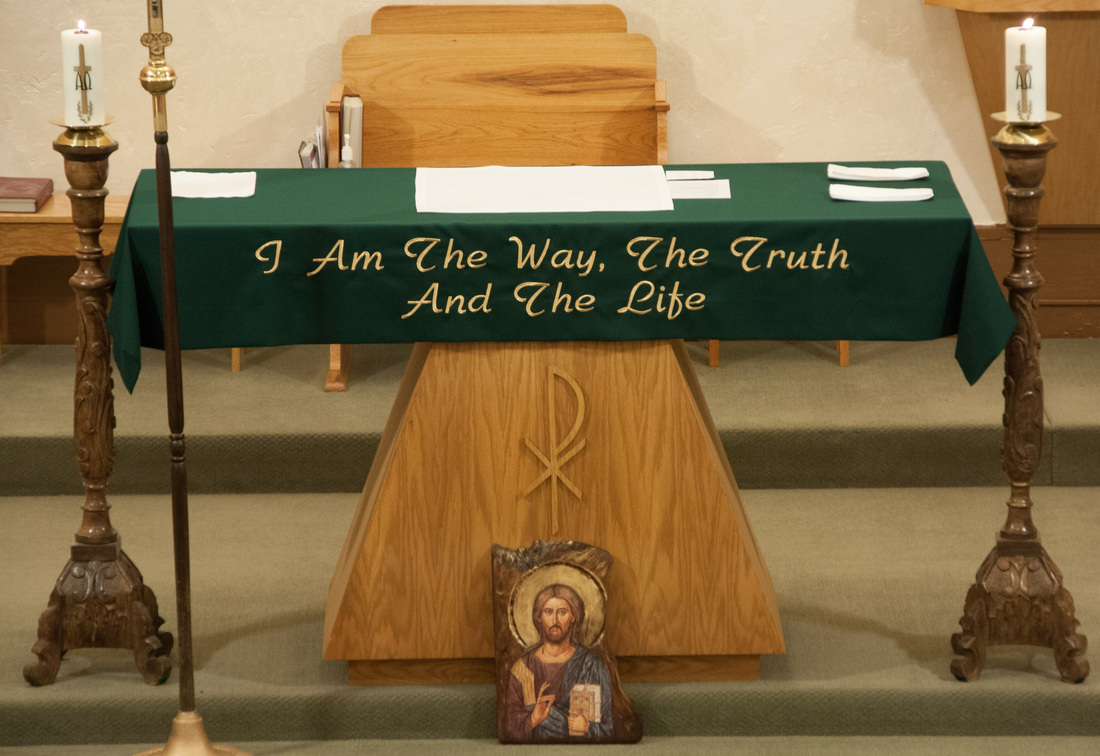
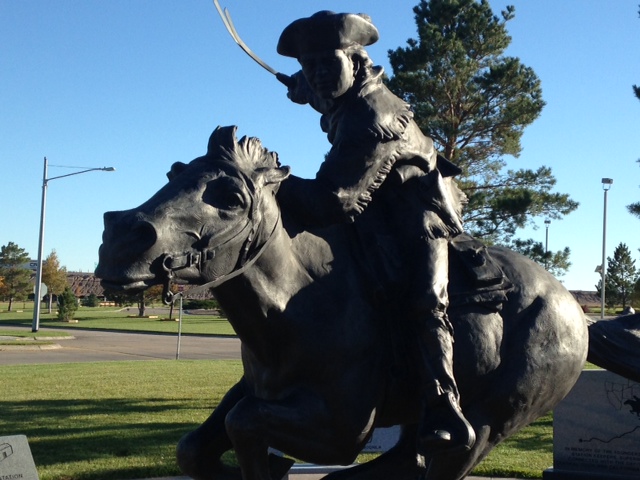

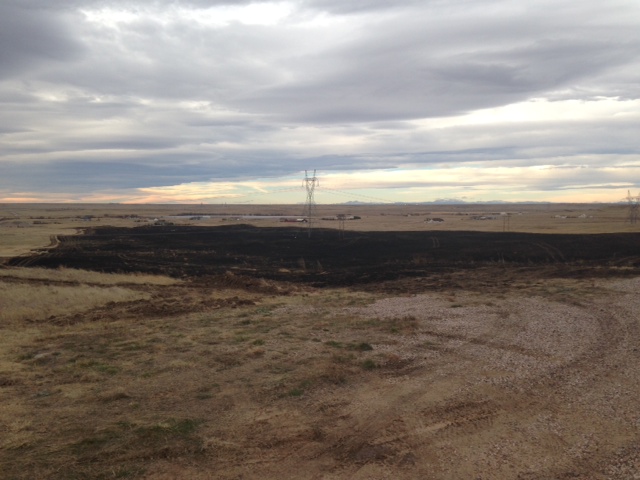

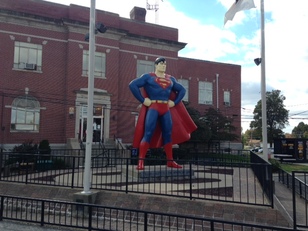



 RSS Feed
RSS Feed
